Lebanese Protest Impunity One Year On From Deadly Blast
Thousands of grief-stricken Lebanese on Wednesday marked a year since a cataclysmic explosion ravaged Beirut, protesting impunity over the country's worst peacetime disaster at a time when its economy was already in tatters.
Not far from a solemn remembrance service being held at the "ground zero" site of the blast, a group of protesters scuffled with riot police near the entrance to parliament, whose members have been accused of stalling a probe into the disaster.
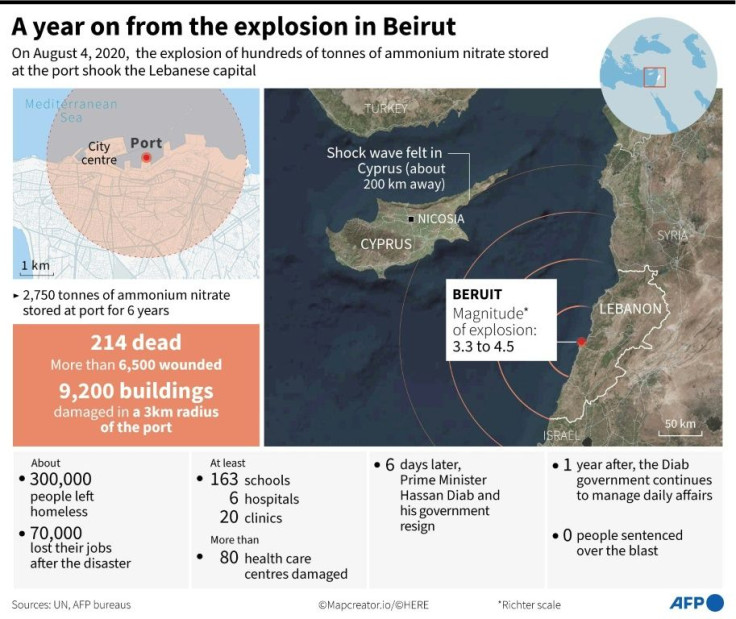
Police fired tear gas, water canons and rubber bullets at demonstrators lobbing stones, firecrackers and Molotov cocktails, in clashes which the Red Cross said left more than 50 injured.
Mournful tunes rang out above central Beirut, as crowds walked towards the dockside, many brandishing posters demanding accountability over the disaster.
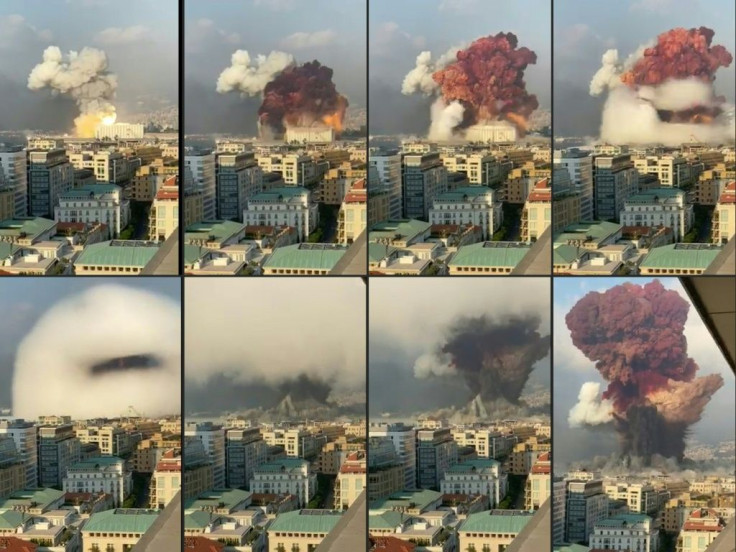
On August 4, 2020, a stock of ammonium nitrate fertiliser haphazardly stored at the city's port exploded and left swathes of the Lebanese capital looking like a war zone.
What went down as one of the largest non-nuclear blasts in history killed at least 214 people, levelled entire neighbourhoods, irreparably scarred the nation's psyche and deepened the country's economic abyss.
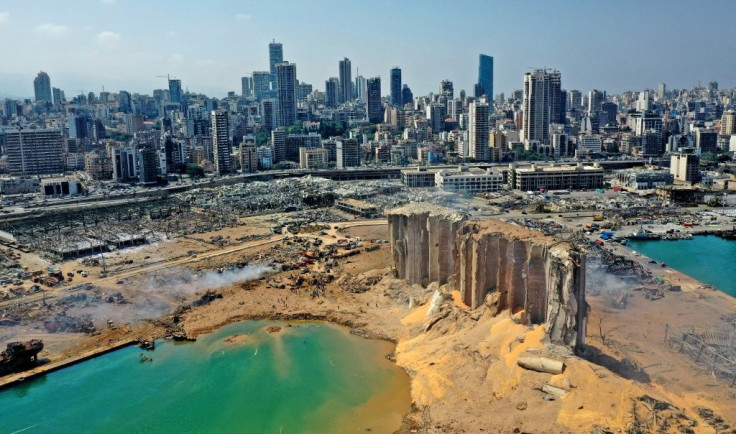
At the clock struck 6:07 pm, the exact time of the blast, thousands observed a minute's silence on the empty highway running past the obliterated port, the ruins of its grain silos basking in the evening sunshine.
Sandra Abras, 43, said she had come to pay respect to the victims after she was lucky to survive the explosion, but her home was ravaged in the blast.
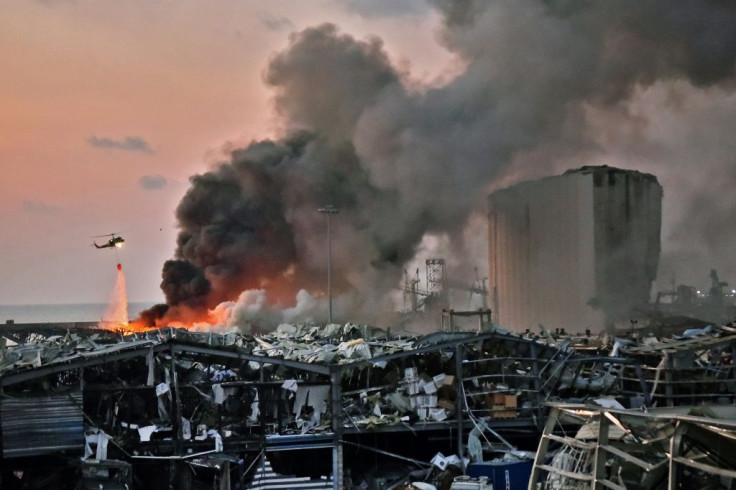
"We weren't able to return home for a month and a half... We fixed it with our own money," she said, adding she suffered strong headaches for months after the event.
Lawyers, doctors and engineers also joined in to pay tribute to those who perished in the blast, whose shockwave was felt as far away as Cyprus.
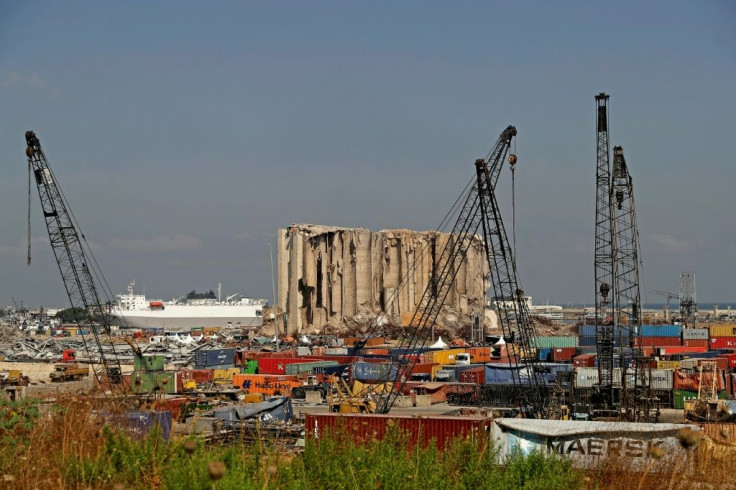
Port workers were buried under gutted grain silos in the explosion, commuters crushed to death and residents lacerated by supersonic shards of glass bled out in their homes.
With public animosity running high against the political class, officials kept away from the remembrance service.
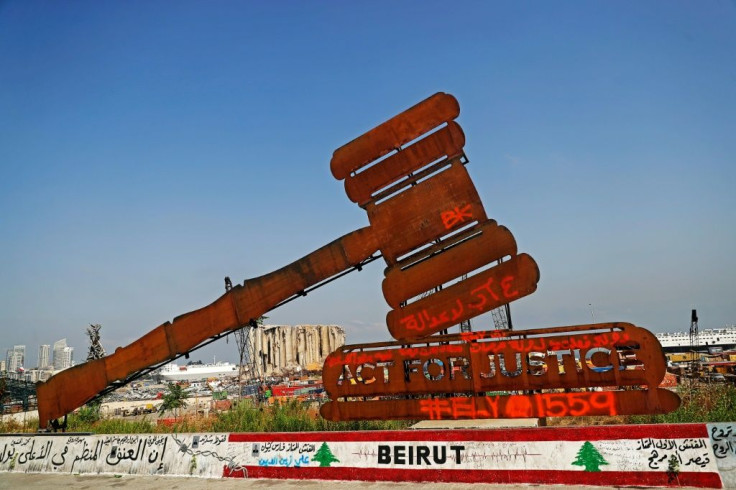
At the march a year later, protesters clad in dark hooded robes paraded a mock guillotine.
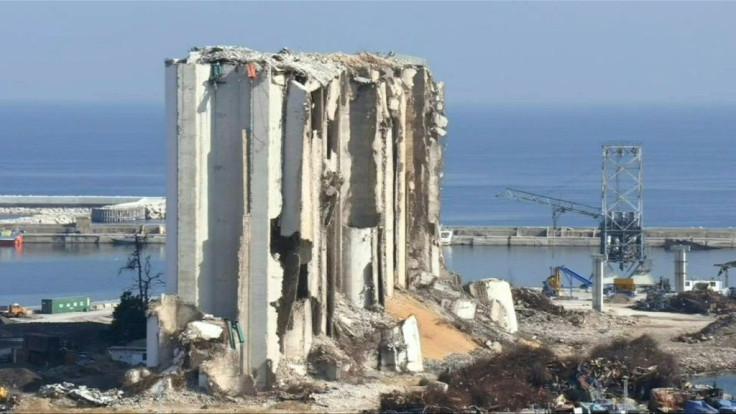
"My 'government' killed my people, took our homes and turned our city to dust," one woman's sign read.
Wafaa Karam, 37, mourned her brother, a nephew and a cousin, all firefighters killed last summer after they rushed to extinguish the fire that sparked the blast.
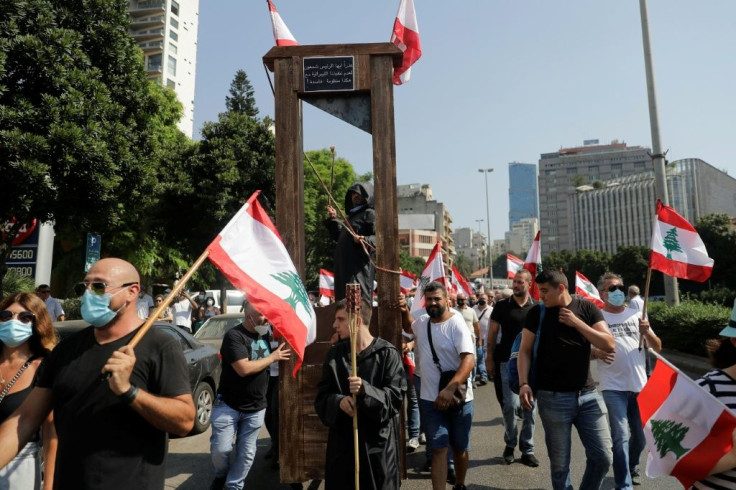
"We want the truth," she said.
The country's already reviled political class has hidden behind its proclaimed immunity to avoid prosecution, stalling the lead investigating judge's work at every turn.
Jeffry Chartouni, a worker at the port's grain silos, said he wanted justice for his seven colleagues killed.
"The security officials, the government, the customs, of course they all knew," the 32-year-old said.
Since the blast, the country has sunk deeper into economic crisis.
With more than half the population now living under the poverty line, an international donor conference collected $370 million in urgent aid for Lebanon on Wednesday, exceeding a $350 million target.
Former colonial power France pledged $118 million and the United States promised $100 million, at the latest conference to drum up humanitarian aid.
Amnesty International has accused the Lebanese authorities of "shamelessly obstructing" justice, while Human Rights Watch accused them of "criminal negligence".
On Monday, relatives of blast victims called on authorities to lift immunity within three days, warning they were willing to "break bones" in upcoming protests.
According to foreign and Lebanese intelligence reports seen by AFP, hundreds of tonnes of fertiliser were carelessly stored in the same warehouse as tonnes of fireworks and rolls of detonating cord, among other dangerous materials.
Lebanon's parliamentarians -- some of whom have been nicknamed the "nitrate deputies" on social media -- are ignoring intense international pressure and threats of sanctions.
The political class has also yet to agree on a new cabinet to replace the one that resigned after the explosion, a key condition to unlock any financial assistance to the cash-strapped state.
Lebanon's descent into chaos had already started before the port blast, with a bankrupt state trapping people's savings in banks and the national currency nosediving on the black market.
© Copyright AFP 2024. All rights reserved.





















